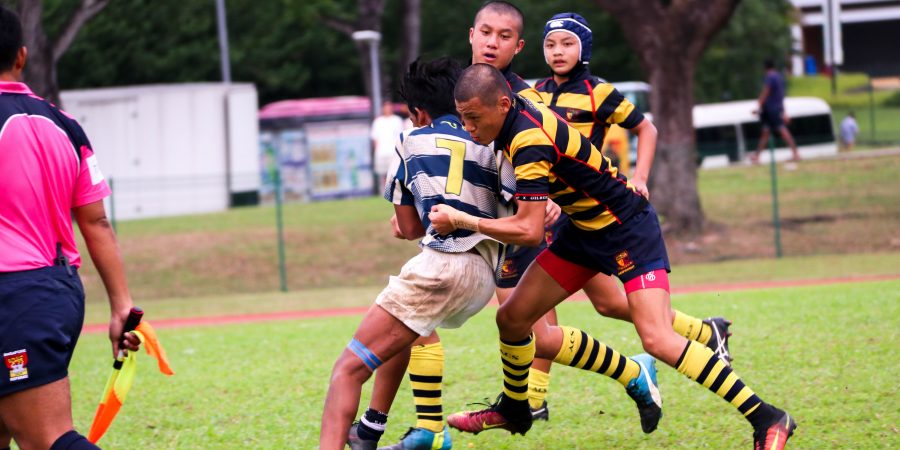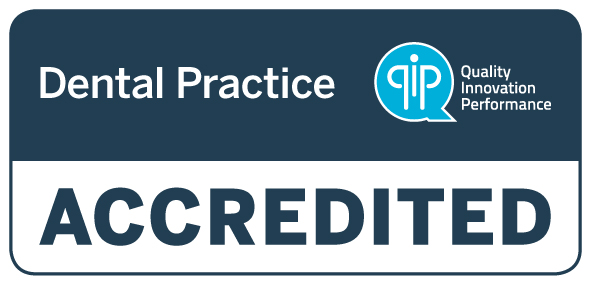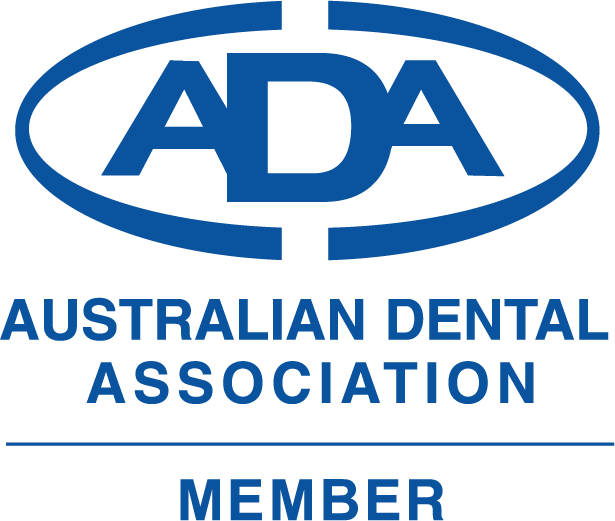Most contact sports require mouthguards, including but not limited to: water polo, soccer, rugby, cricket, AFL, rugby league, basketball, boxing, martial arts, and hockey. If the sport is school or club based, often a mouthguard will be compulsory.
What does a mouthguard do?
If there is a blow to the face, the mouthguard absorbs the impact to protect the teeth. Some consequences of not wearing a mouthguard include teeth being knocked out, displaced or broken so it’s very important to always wear a mouthguard.
Can you wear a mouthguard over braces or aligners?
Normal dental mouthguards do not work when going through orthodontic treatment, as it doesn’t allow for movement of teeth as they start to straighten. So, what should you do about a mouthguard when you have braces or aligners to straighten your teeth?
When you have braces or aligners you can definitely still use a mouthguard. The archwires of braces actually help to support the teeth, and a mouthguard will not only help to absorb the impact of a blow but also protect the soft tissues (cheeks and lips) from laceration caused by the braces. If a patient is using aligners, they must remove the aligners prior to inserting a mouthguard. Aligners will not protect the teeth from a hard impact.
Where do you get a mouthguard?
There are many options when it comes to purchasing mouthguards – sports stores, pharmacies, dental and orthodontic practices. They may be reheatable or rigid, cover both the top and bottom teeth (bimaxillary) or just the top teeth. Dental labs make rigid mouthguards that are of a high quality. They come in a variety of colours and are sometimes able to include a name and phone number inserted into the mouthguard during manufacturing. Dental mouthguards require a mould of the teeth and usually take a day or two before your fitting appointment. These rigid mouthguards are not suitable for patients undertaking orthodontic treatment.
The best mouthguard for patients undergoing orthodontic treatment is reheatable mouthguards. However, they vary in quality due to being made from different materials. A high quality reheatable mouthguard is typically not inexpensive but will often come with a warranty (usually 12 months). Your specialist orthodontist will be able to recommend what mouthguards are best for you.
Orthodontic Mouthguard for Braces
We often fit the mouthguard during a normal orthodontic adjustment visit however, it is best to call ahead to see if you require a separate appointment. The orthodontic mouthguard is a looser fit than a dental mouthguard.
As teeth continue to straighten throughout the orthodontic treatment, the mouthguard will start to not fit as well and will need to be reheated and remoulded to the new position of the teeth. It is important not to use boiling water, as it can melt the mouthguard, hot water should be sufficient. We will provide instructions on how to remould the mouthguard when the mouthguard is first fitted. If you have any difficulties, the specialist orthodontist will be able to assist.
How to take care of your mouthguard
Whichever mouthguard your dental professional recommends, it is important to follow a few key things to care of it. Firstly, clean and rinse before use, and clean, rinse and dry after wearing the mouthguard. Secondly, keep it in a cool, dry case away from direct sunlight and heat. Always replace a mouthguard that is split, cracked, or has any obvious damage. However, all mouthguards will come with instruction so be sure to read and follow those. A new mouthguard may be required if significant dental work has been carried out.
Get in touch with us to talk about mouthguard options and how we can help find the best solution for you. Our specialist orthodontist offers services and treatments to transform smiles for patients in Toowong, Ashgrove, Auchenflower, Bardon, Chapel Hill, Indooroopilly, Kenmore, Paddington, Sherwood, St Lucia, Taringa.






